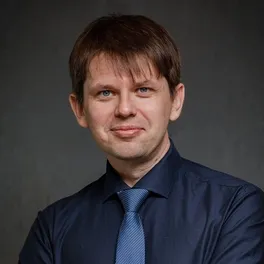Russian AI in a White Coat: How Technology Is Transforming Healthcare from Within
Russian AI in a White Coat: How Technology Is Transforming Healthcare from Within

From Digitalization to Intelligent Care
Russia’s healthcare sector is entering a new phase in its digital evolution, driven by artificial intelligence. According to a recent analytical report from K-Sky, the country’s health AI market is expected to nearly double—from today’s equivalent of $718 million to about $1.35 billion by 2030. This growth reflects not only the economic potential of AI, but also deep changes in care delivery.
Years of systematic digitalization laid the groundwork: electronic medical records, radiology information systems, and the national unified health information system created the infrastructure needed for advanced analytics. Now, healthcare organizations are shifting to intelligent systems that extract insights directly from accumulated data.

Government policy reinforces this shift. Russia’s national AI development strategy, its regulatory programs for medical AI devices, and new specialized standards are shaping a predictable environment for developers. A notable example is Moscow’s large‑scale computer vision experiment—funded at nearly $20 million—which accelerated the formation of a domestic AI marketplace for medicine.
AI Tools for Real Clinical Needs
Multiple AI-driven directions are developing simultaneously. In diagnostics, computer-vision systems are already assisting in reading X-rays, CT scans, and MRI results. Clinical decision‑support systems analyze patient records and suggest diagnostic or treatment options.
Personalized medicine is advancing through algorithms that evaluate individual clinical data and recommend customized therapies. In pharmaceuticals, AI accelerates drug discovery by processing vast amounts of clinical evidence, while remote-monitoring tools allow physicians to follow chronic patients in real time.
Impact on Patients and Clinicians
For patients, AI promises greater access to timely and high‑quality medical care. Automation reduces administrative workloads, allowing clinicians to spend more time with patients. Diagnostic‑support tools help reduce errors, and telemedicine platforms with embedded AI improve access for remote and rural communities.

For physicians, AI provides powerful analytical support. Instead of manually reviewing hundreds of pages of records, clinicians receive structured summaries highlighting risk factors and critical indicators—an invaluable asset in an environment of overloaded schedules.
Economic and Industry Impact
From an economic standpoint, AI improves efficiency by lowering operational costs and reducing avoidable complications and readmissions. In the long term, AI may help stabilize healthcare spending while improving outcomes.
A new high‑tech market segment is also emerging: domestic medical AI development. Investments in this sector already reach $52 million, with roughly 69% coming from public sources. This stimulates job creation and supports the scientific and technological workforce.

Future Outlook and Key Challenges
By 2030, the market could exceed forecasts, especially if primary‑care digitalization accelerates and private‑sector participation expands. High‑growth areas include automated document management, intelligent patient‑monitoring systems, and predictive analytics for disease prevention.
Internationally, Russian AI developers may expand into markets with comparable health‑system structures. Success, however, will require global certification and careful localization of technologies.
Overall, AI is reshaping Russia’s healthcare ecosystem step by step. Its progress directly affects not only the economy, but also the health and longevity of millions of people. Current trends suggest that the trajectory is sound.










































